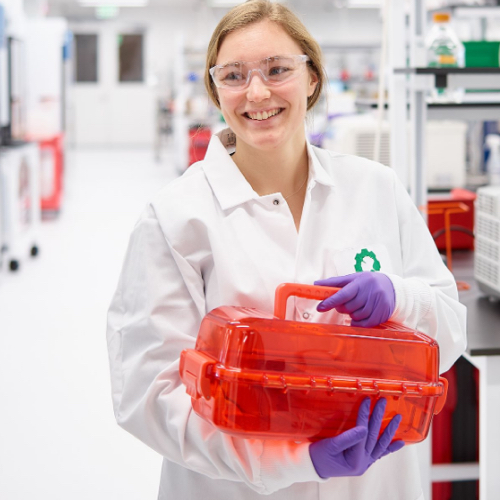Today we’re announcing the launch of two new companies via the Ferment Consortium: Verb Biotics and Ayana Bio.
Verb—a probiotics innovation company—will focus on identifying and designing new strains of probiotic bacteria with advanced properties for human nutrition, health, and wellness. Ayana plans to support human health and wellness by harnessing bioactive compounds for use as complementary medicine.
Verb Biotics
The probiotics category is a $50B global industry that’s growing rapidly. As awareness and understanding of the human microbiome—the trillions of bacteria that live in and on your body—has grown over the past decade, there’s been tremendous interest in probiotic-enhanced foods, beverages, and supplements. Many existing probiotic products use strains of bacteria common to yogurt and other fermented products, but these strains have a number of challenges including limited shelf life, poor stability, and restrictive metabolic profiles.
Since Ginkgo has significant expertise in the discovery and design of microbes with a wide array of functions, Verb plans to leverage our high-throughput platform to perform sequencing, proteomics and metabolomics analysis, pathway design, cell culturing, and fermentation work in order to improve the design and development of probiotics.
Verb is launching with $30 million in Series A funding provided by Viking Global Investors and Cascade Investment.
Ayana Bio
To address issues ranging from supporting a healthy immune system, to aiding metabolism, to promoting healthy aging, consumers are looking for health products that are complementary to conventional medicine. Two categories of products that offer complementary health products—nutraceuticals and traditional medicines—represent over $400 billion.
The bioactive ingredients that go into products in these categories come from a range of natural sources such as medicinal plants and fungi. However, unsustainable harvesting, variability in the source organisms, and the methods of preparation all contribute to uncertainty around these important molecules and limit the potential for widespread use.
Ayana plans to collaborate with global industry leaders in consumer packaged goods, supplements, specialized nutrition, over-the-counter medicines, and traditional medicines to bring to market standardized bioactives that provide consumers with confidence in quality and reliability. Our cell programming platform will support Ayana’s mission to bring to market high purity, clean and reliable medicinal bioactives in convenient forms.
Ayana is launching with $30 million in Series A funding provided by Viking Global Investors and Cascade Investment.
Ferment Consortium
The Ferment Consortium is a company creation studio that works with Viking Global Investors and Cascade Investment to help incubate, fund, and launch new companies that use cell programming to support human and environmental health and wellbeing. (Psst! If you have a great idea of how to grow the future, Ferment Co would love to hear from you.)
Verb and Ayana join our other Platform Ventures: Joyn Bio, Allonnia, and Motif FoodWorks, which recently raised a $226 million Series B round led by Ontario Teachers Pension Plan and BlackRock.
